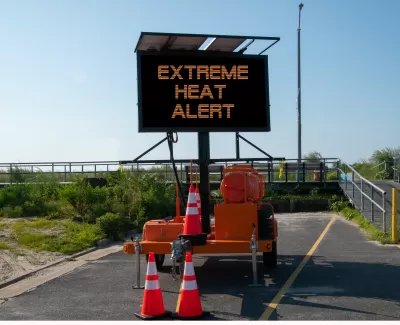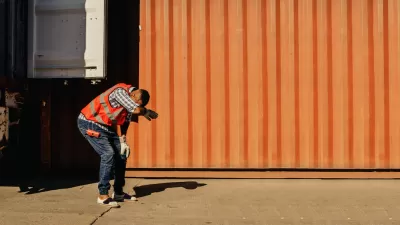A higher number of high heat days correlates with more cardiovascular deaths, according to new research.

According to an article by Maryn McKenna in Wired, new research suggests that “cardiovascular deaths linked to extreme heat could triple to almost 5,500 extra deaths per year, if nothing is done to curb the greenhouse gas emissions that are driving climate change and extreme heat events” by the middle of the century. Even with some emissions reductions, the study predicts a doubling of cardiovascular deaths.
“Thanks to the combined influences of age, genetic vulnerability, geography, and the heat-trapping aspects of urban development, the investigators predict that older adults will be at higher risk, and Black adults will be at higher risk than any other group,” the study notes.
“The projections confirm what other researchers have been finding: a reliable relationship between climate change and harm to human health, not just in the US but worldwide.” Meanwhile, a vast web of policies and historical decisions put low-income households and communities of color at higher risk for being impacted by extreme weather and pollution.
Cities are increasingly recognizing the dangers of extreme heat and taking steps to identify the areas at highest risk and launch interventions such as increasing green space, providing shade, and installing reflective surfaces to mitigate the urban heat island effect.
FULL STORY: As Extreme Heat Increases, Heart Attacks Will Rise

Alabama: Trump Terminates Settlements for Black Communities Harmed By Raw Sewage
Trump deemed the landmark civil rights agreement “illegal DEI and environmental justice policy.”

Study: Maui’s Plan to Convert Vacation Rentals to Long-Term Housing Could Cause Nearly $1 Billion Economic Loss
The plan would reduce visitor accommodation by 25% resulting in 1,900 jobs lost.

Planetizen Federal Action Tracker
A weekly monitor of how Trump’s orders and actions are impacting planners and planning in America.

Waymo Gets Permission to Map SF’s Market Street
If allowed to operate on the traffic-restricted street, Waymo’s autonomous taxis would have a leg up over ride-hailing competitors — and counter the city’s efforts to grow bike and pedestrian on the thoroughfare.

Parklet Symposium Highlights the Success of Shared Spaces
Parklets got a boost during the Covid-19 pandemic, when the concept was translated to outdoor dining programs that offered restaurants a lifeline during the shutdown.

Federal Homelessness Agency Places Entire Staff on Leave
The U.S. Interagency Council on Homelessness is the only federal agency dedicated to preventing and ending homelessness.
Urban Design for Planners 1: Software Tools
This six-course series explores essential urban design concepts using open source software and equips planners with the tools they need to participate fully in the urban design process.
Planning for Universal Design
Learn the tools for implementing Universal Design in planning regulations.
Caltrans
Smith Gee Studio
Institute for Housing and Urban Development Studies (IHS)
City of Grandview
Harvard GSD Executive Education
Toledo-Lucas County Plan Commissions
Salt Lake City
NYU Wagner Graduate School of Public Service





























